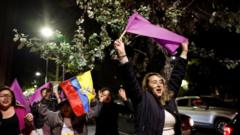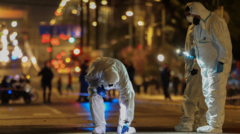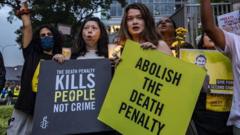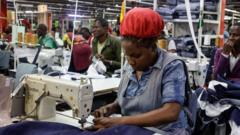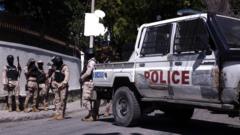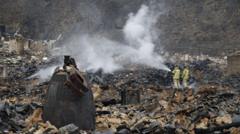The drama competition, showcasing a play titled "Echoes of War," faced turmoil as police deployed tear gas to disperse a crowd. The production, banned initially but later reinstated by a court, critiques governance and reflects societal issues impacting the youth of Kenya.
Tear Gas Disruption at Kenya's School Drama Festival
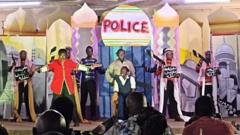
Tear Gas Disruption at Kenya's School Drama Festival
Tensions erupted at a national high-school drama competition in Nakuru, Kenya, when police intervened to manage a crowd gathered to see a controversial play.
Amidst a dramatic backdrop of student activism and police intervention, Kenya’s national high-school drama competition turned chaotic in Nakuru. The event's highlight, "Echoes of War," a thought-provoking play on youth empowerment and digital governance, found itself at the center of controversy when police deployed tear gas to manage an eager yet unauthorized crowd.
Originally barred from the festival under unclear regulations, the play's fate changed as a High Court ruling permitted its performance, sparking increased interest among the public. Tensions escalated as Butere Girls School students, upset over the arrest of their scriptwriter, Cleophas Malala, staged a walkout during rehearsals. Malala, a former senator, had been barred from attending the final preparations only to be released later without charges. He commended the students' bravery in their quest for artistic expression.
During the incident, students expressed their frustration, stating, "There’s no audience. Who are we performing for?" as police surrounded the venue, further aggravating the situation. Following emotional renditions of the national anthem, the students exited the hall, declaring their solidarity with Malala.
Education Minister Julius Ogamba raised concerns about Malala's participation in the competition, as he was neither a teacher nor a director. In response to the chaos, Amnesty International condemned the police actions, pointing to worsening state suppression of free expression and assembly rights.
Prominent opposition figure Kalonzo Musyoka stood in solidarity with the students, praising their resolve to boycott the performance, while the Orange Democratic Movement called for the students to be allowed to perform freely like their peers. The unfolding events not only reflect the widening generational chasm in Kenya but also echo the larger societal challenges that have historically spurred youth-led protests.







